Hunting comes naturally to cats, of course, because they’re predators. When roaming outdoors, they prey upon small wildlife like birds, mammals, reptiles and amphibians.
Some cats are much keener hunters than others. Research from Switzerland, for instance, found that just 16 per cent of the cats studied were responsible for nearly 75 per cent of the predation events during the study period.
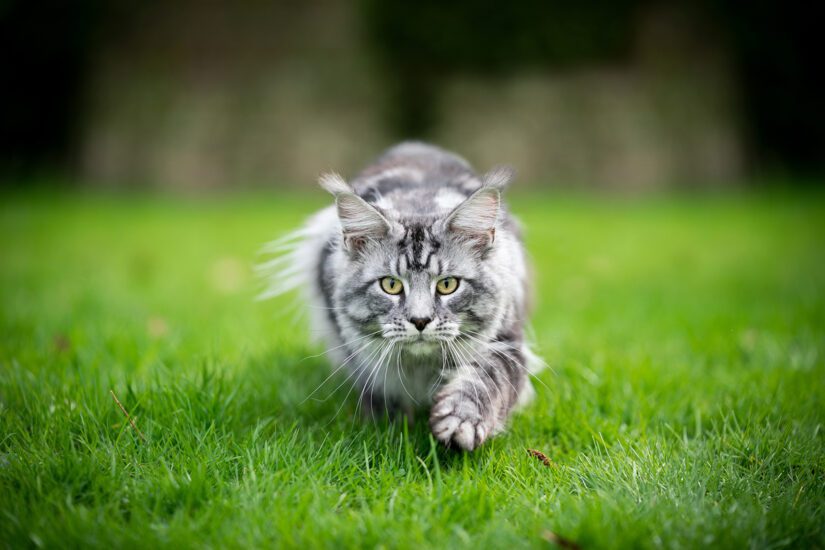
Variation in hunting behaviour is thought to be due to three main factors:
- The availability of prey in the cat’s outdoor environment
- The guardian’s care practices
- The cat’s own intrinsic characteristics
A team of researchers in France was interested in these intrinsic characteristics. They investigated the link between a cat’s personality and hunting behaviour. Here’s what they found:
- Extraverted cats, described as smart and persistent by their guardians, had high bird and mammal return rates.
- Cats considered shy and fearful of other cats by their guardians brought home fewer birds and mammals.
The authors proposed that a cat’s personality could have an influence in a few ways. For instance, guardians of shy, fearful cats may be less likely to let them outside — perhaps because these cats don’t want to be outdoors much. Also, once outside, shy, fearful cats may be less likely to explore their environment and encounter prey.
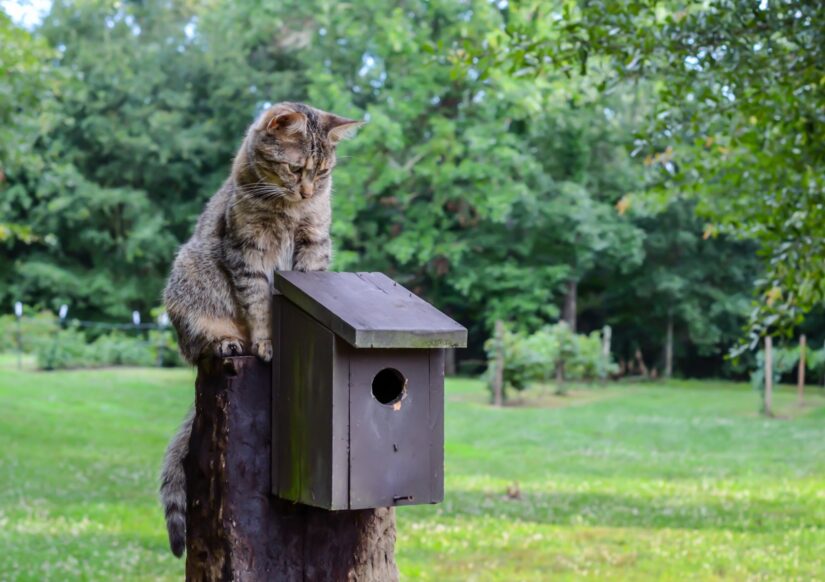
While not every cat has the same motivation to hunt, the fact remains that, collectively, cats are responsible for the deaths of millions of wild animals each year in Canada. Given that hunting is an innate behaviour, then, can anything be done about it?
What the science says
To help answer this question, researchers have looked at aspects of care that may influence a cat’s desire to hunt.
For instance, in a study conducted in England, guardians were asked to spend just 10 minutes a day playing with their cats. Surprisingly, over the 12-week experiment, they saw a 25 per cent drop in the total number of animals their cats brought home.
These findings indicate that it may be possible to reduce hunting behaviour in cats through modest changes in human behaviour.
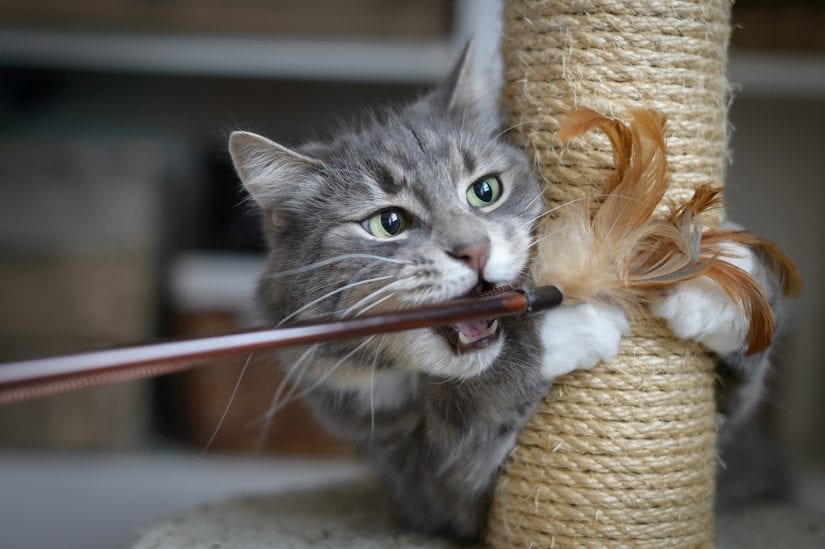
What about bells?
Over the years, researchers have also looked at factors that impact a cat’s ability to hunt.
Cats have been outfitted with bells, bibs, sonic emitters and lights, all with the goal of reducing their hunting success. Results have been mixed, with some devices like bibs performing better than others. Cats are highly adaptive, of course, and can even learn how to silence a bell while hunting.
Birdsbesafe® collars, a more recent innovation in predation deterrence, are showing promise. These brightly coloured collar covers make cats more visible to birds. Research has shown that they can reduce bird captures by more than 80 per cent.
Ultimately, though, the most effective way to prevent cats from predating on wildlife is to keep them indoors.
Risks to outdoor cats
While it’s true that cats are predators, they’re also a prey species. Being outdoors leaves them vulnerable to attacks from wild animals such as coyotes. Other risks they face outdoors include vehicles, fights with other cats, diseases and parasites, frostbite and secondary poisoning from eating rats or mice who have ingested rodenticides.
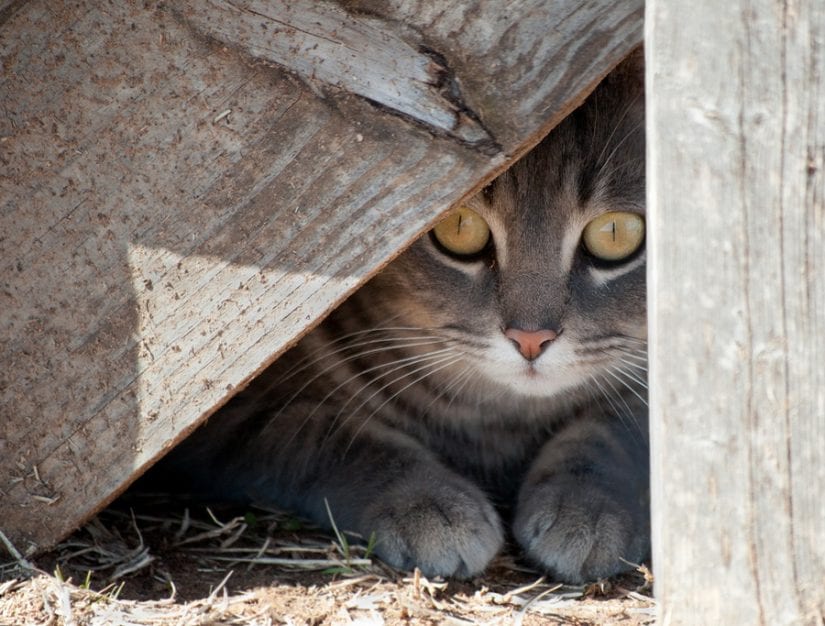
Keeping indoor cats happy
Indoor cats aren’t doomed to a life of monotony, as long as their guardians are willing to put in the work to keep them happy and healthy. There’s a long-standing belief that, unlike dogs, cats are low-maintenance, independent pets. But to give indoor cats a satisfying, enriched life, they need many of the same things that dogs do.
One of these things is playtime with their guardians, which, as the research above demonstrates, can be an excellent outlet for their natural hunting behaviour. In many ways, play mimics the hunting sequence in cats, including behaviours like stalking, chasing, pouncing and catching.
Furthermore, keeping cats indoors doesn’t have to mean they are deprived of the outdoors entirely. Providing your cat with time outside supervised in a backyard or on a harness and leash is one way to give them exercise and opportunities to explore. You can also build a simple cat patio — or catio — to let your cat come and go from an enclosed outdoor space as they please.
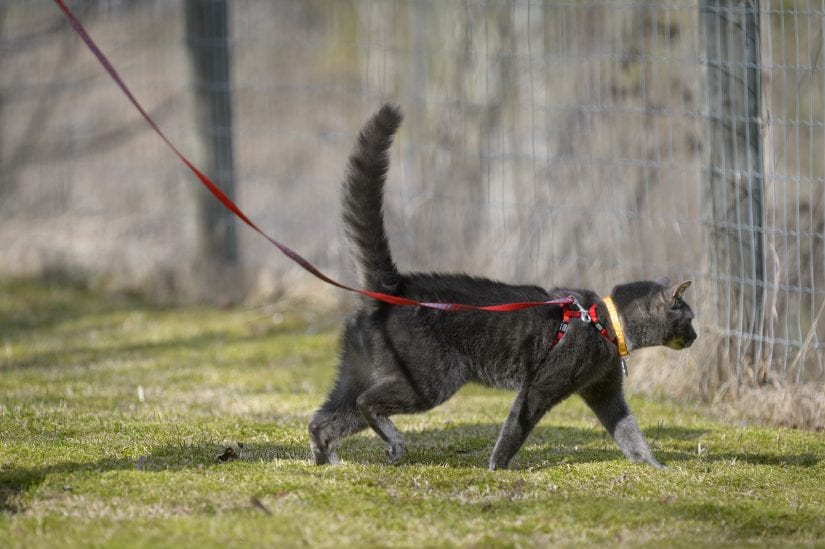
At the end of the day, cats hunt because it’s instinct. It’s up to us as their guardians to provide them with an outlet for this behaviour that keeps both them and wildlife safe.
Find out more ways of keeping your cat stimulated indoors.
